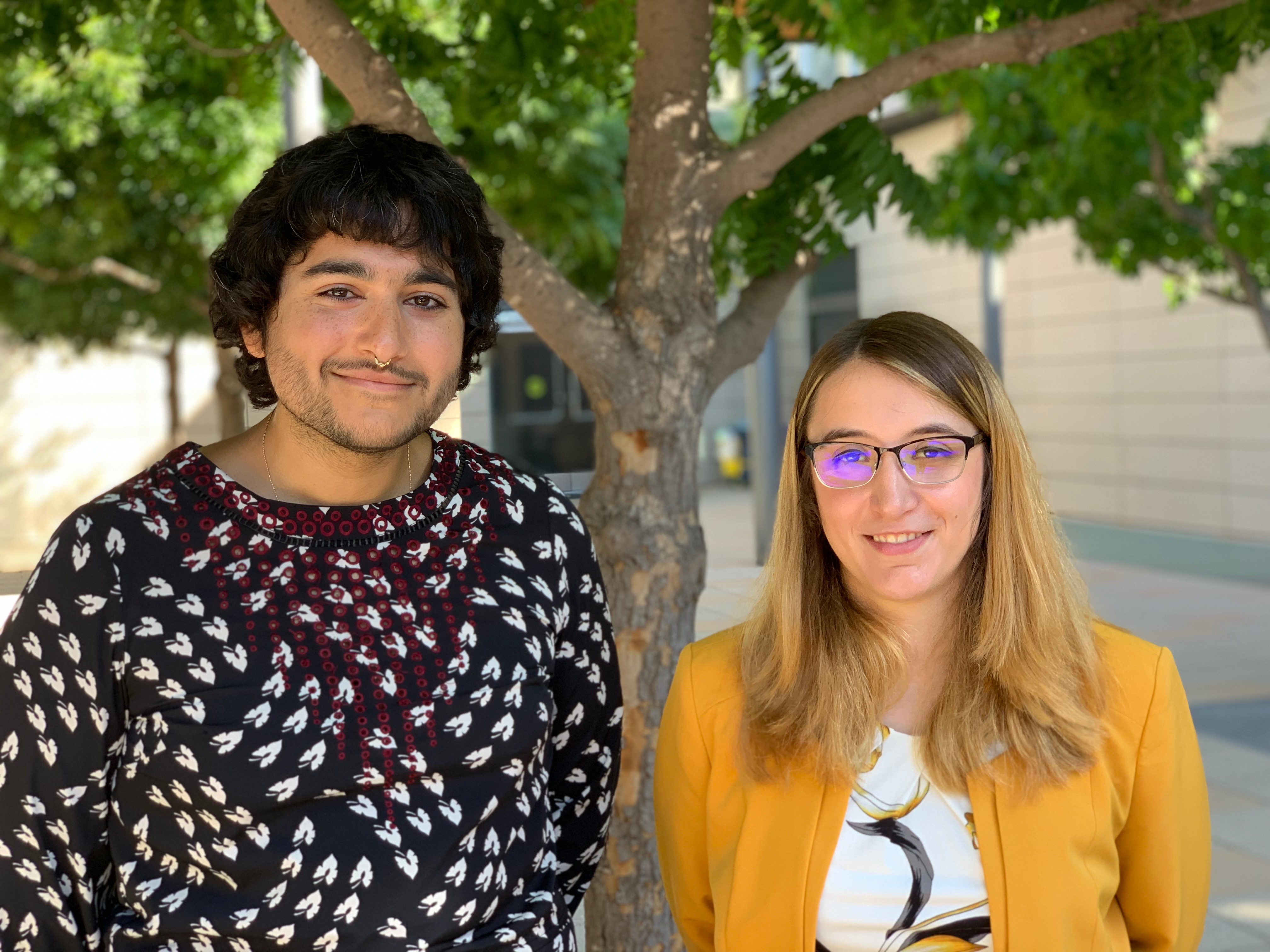 Co-founders of the Legal Automation Workshop, a new Student-Initiated Legal Services Project
Co-founders of the Legal Automation Workshop, a new Student-Initiated Legal Services Project
Ari: My background is as a software engineer. I spent four years at Facebook and a year working at the Pentagon before law school. Berkeley Law has a large technology law contingent, but they’re mostly focused on application of law to technology. I see a big opportunity in the field of applying technology to law.
I wanted to start the Legal Automation Workshop (LAW) because there was an obvious need for support among the Student-Initiated Legal Services Projects (SLPs).
Marta: So, I am not a software engineer. Unlike Ari, My background is in biochemistry, and I got involved in computer science when I started working for a healthcare software company. But I worked with the East Bay Community Law Center’s Deferred Action for Childhood Arrivals (DACA) clinic last spring and it seemed like I was filling out the same form or entering the same information over and over again. So when I heard Ari was working on launching a legal automation SLP, I was like, ‘yeah, I’m in!’
Ari: LAW officially launched this fall, but we’ve already had a few clients. I worked with EBCLC’s Name and Gender Change Workshop to build an online workflow that eliminated a bunch of repetitive paperwork. So now, assuming you enter the correct information initially, all of the forms will be consistent and correct without having to scroll through dozens of pages and enter it manually. They are now able to process the most common cases about twice as fast as before the digital system.
Marta: We have a whole bunch of SLPs that are interested in developing legal automation to help streamline the big processes which take up a lot of the students’ and lawyers’ time that could be better spent on substantive work.
Ari: We want to be conscientious of the sustainability of the work we do in terms of both LAW participants and the organizations that we’re assisting. Ideally we can turn a digital solution over to the client when the project is done. Students don’t have to have a software engineering background to participate in LAW, but some familiarity with coding definitely helps.
Marta: It’sthe type of thing that a hobbyist software engineer or hobbyist developers, as I like to call myself, can do and can both learn from it and get exposure to some skills that they might not otherwise have been able to show on their resumes. It definitely stood out for me during OCI.
Ari: Legal automation makes a lot of lawyers nervous because I think they see it as a form of replacement. I don’t think legal automation is going to replace human judgment or human creativity in the near future. But it can free up time to enable lawyers to focus more on the creative elements and hopefully break the incredibly unhealthy culture of working long hours.
Marta: In our case, it’s really about streamlining and giving non-profit/pro bono lawyers the ability to actually get to know their clients and the time to do some of that more substantive work, as opposed to sitting there and typing up a form.
Ari: We’re really excited for the first cohort of students to join LAW. The number of people with STEM backgrounds—computer science or otherwise—at Berkeley Law has grown significantly, so we are betting on a groundswell of talent to help support other SLPs and potentially expand to other universities.
I see automation of many processes in the law through technology as an inevitability, just as a matter of efficiency. There’s an opportunity as these systems are rebuilt to create more transparency. The risk is that if people are not there advocating for social justice as that adaptation takes place, then it’s going to be steered by whoever has the most money. What is built will be not just something as opaque and hard to interact with as the current system, but something that is even worse because you will have AI running rampant.
Marta: That’s why it’s critical to get more people who have STEM backgrounds involved in the legal profession. There’s a lot of people making decisions about tech law and policy that don’t understand it. Starting that conversation about the application of technology to law needs to happen in law schools, and especially at law schools like Berkeley where public interest is at the forefront of a lot of students’ minds.
Ari: Students should join the legal automation workshop because they’re passionate about the potential for technology to have a positive impact on law, and specifically a positive impact on peoples’ lives. Learn more about LAW at legalautomation.rocks.